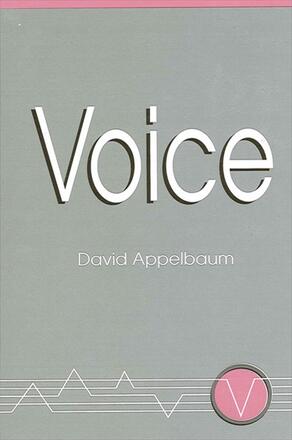
Voice
Alternative formats available from:
Description
Drawing on clues from Aristotle, Plato, Hobbes, Locke, Jacobson, Condillac, and Diderot, Appelbaum investigates the vocalized, acoustical aspect of audible expression. He analyzes the tendency to equate voice with speaking, and speaking with writing, the result being that vocalizing is equivalent to thinking aloud. Appelbaum affirms the body's role in vocalizing expression by proposing a new and radical interpretation of the truth of voice: that it is true if it provides a disclosure of our human contradictions. Sound, or the acoustical properties of a person's voice, is able to bring about the revolutionary new set of conditions which reveal the truth of one's condition.
The author provides a unique account of the subjugation of voice by thought, indicating means for reversing the authority of the sound and for freeing up the voice. He concludes with the argument that poetic voice reconciles the search for semantic meaning with the raw, acoustical effect that the free voice causes.
David Appelbaum is professor of philosophy at The College at New Paltz, New York.
Reviews
"Voice is fascinating; I could not put it down. The meaning of human speech to being human is a profound philosophical question. It is explored not only in its personal dimension, but also in its social and political dimensions. I regretted that the book was over when I reached the last page. " — Robert Ginsberg, Pennsylvania State University
"Appelbaum attacks the hyper-intellectualism of analytic philosophers and artificial intelligence advocates, and helps restore us to our own bodies, our own emotions, our own sufferings and joys. " — Bruce Wilshire, Rutgers University